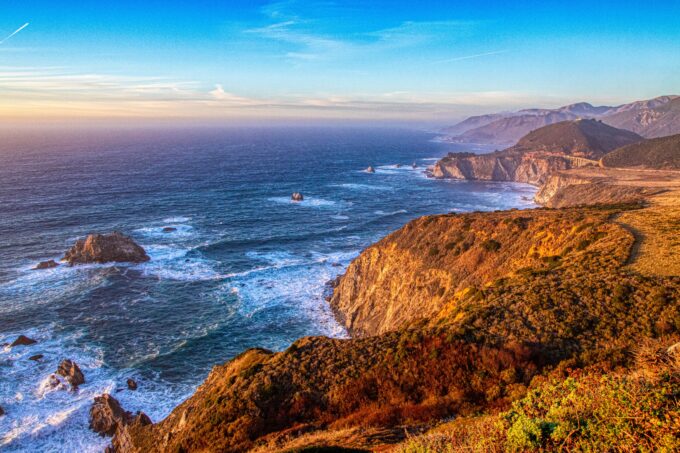
Image by Mick Haupt.
An unfortunate part of modern life is living with the knowledge that the planet we live on is quite obviously suffering from the ventures of humankind. The destruction wrought in the pursuit of profit and the name of progress continues every moment of every day. The benefits are now mostly outweighed by the damage of these endeavors. Some of us watch and fret, some just watch, and some just don’t seem to care, even though the vehemence of their denials seems to indicate their belief in the truth of the claims. Those who do care wonder what they can do and if anything they do at this point in time would even matter.
We read newspapers, journals and watch video reports discussing and detailing the damage. We hear scientists raising alarms and politicians demanding our dollars. The content is often overly technical and the context is one of fear. The protests are naturally strident and the official promises are bureaucratically bland. Very rarely a voice comes forth, expressing the fears and the facts in a lyrically sensitive manner,
Char Miller is one such voice. His years of prose detailing the dangers of fracking, the commercial reasons those dangers are denied and the struggles against this industrial destruction comprise a fair amount of his recently published text titled Natural Consequences: Intimate Essays for a Planet in Peril. As a resident Southern California, he is also witness to the devastation caused by the excesses of US capitalist culture that most of his fellow residents seem to take for granted. Among those excesses are too many motor vehicles on too many giant highways, not enough water but a refusal to conserve what water there is, and a human hubris that is only exacerbated by an economic system that rewards environmental destruction in the short term while rejecting and silencing those who search for more long term and sustainable approaches to humanity’s presence on the planet.
Having lived in southern California for six or seven months back in the 1970s, I can visualize some of the places Miller writes about. I recall the sense back then that that part of the earth was being sucked dry and the air above it was not exactly how air should be. My connection to the highways was one where as a hitchhiker I appreciated their utility but cursed their domination of the region’s surface, After all, it was the smaller roads that were easier to hitchhike on, not the multi-lane freeways with entrance ramps as confusing as the working-class neighborhoods that looked remarkably similar to each other, with only street markers differentiating them from each other. 
Miller’s day job, if you will, is as a professor of environmental analysis and history at Pomona College. The college is in a city that sits east of Los Angeles right off Interstate 10 between Los Angeles and San Bernardino.. My memories of the region include a lot of concrete, some mountains in the near distance and San Bernardino up the road. Miller’s essays in Natural Consequences fill in the huge blocks of description my memory never held. His love for the region, its landscapes, and wildlife is eloquently written down in the text. So, too is a sense of foreboding and even hopelessness despite his natural optimism because of what humanity and its economics have done to erode and even destroy.
There are reflections on various political endeavors whose goal is the protection of the region’s dwindling habitat and resources. The words written about these campaigns describe a scenario only too familiar: human arrogance fueled by profits and greed; all of which are accompanied by a refusal to consider long term solutions because such solutions do not turn in the same profits. Instead of keeping public lands and the water flowing through those lands owned by the public, the privateers in development and banking demand more privatization or, at least, the siphoning of the water from those lands, consequently changing them from important resources designed by nature to sustain life on and under the surface into dust. One essay describes a water reclamation project rejected for a project that will ultimately suck an underground stream dry. When one considers the constant state of drought in California, the irresponsibility of such decisions begs the question of not just how little the profiteers care about future generations, but of how much do they even care about their own lives. One is reminded of how dangerous human hubris actually is while also wondering how blind and foolish can the pursuit of money and power actually make humanity be.
The beauty of this book can be found in Miller’s descriptions of flora and fauna he discovers in his wanderings. The unique ecology of the Los Angeles Mountains comes alive in his telling. Likewise, the urgent need to save this world he describes is also situated in the lucid and simple elegance of his prose. Miller reminds us that not only should this beauty be saved for its own sake, but for the sake of the planet and its inhabitants, too.